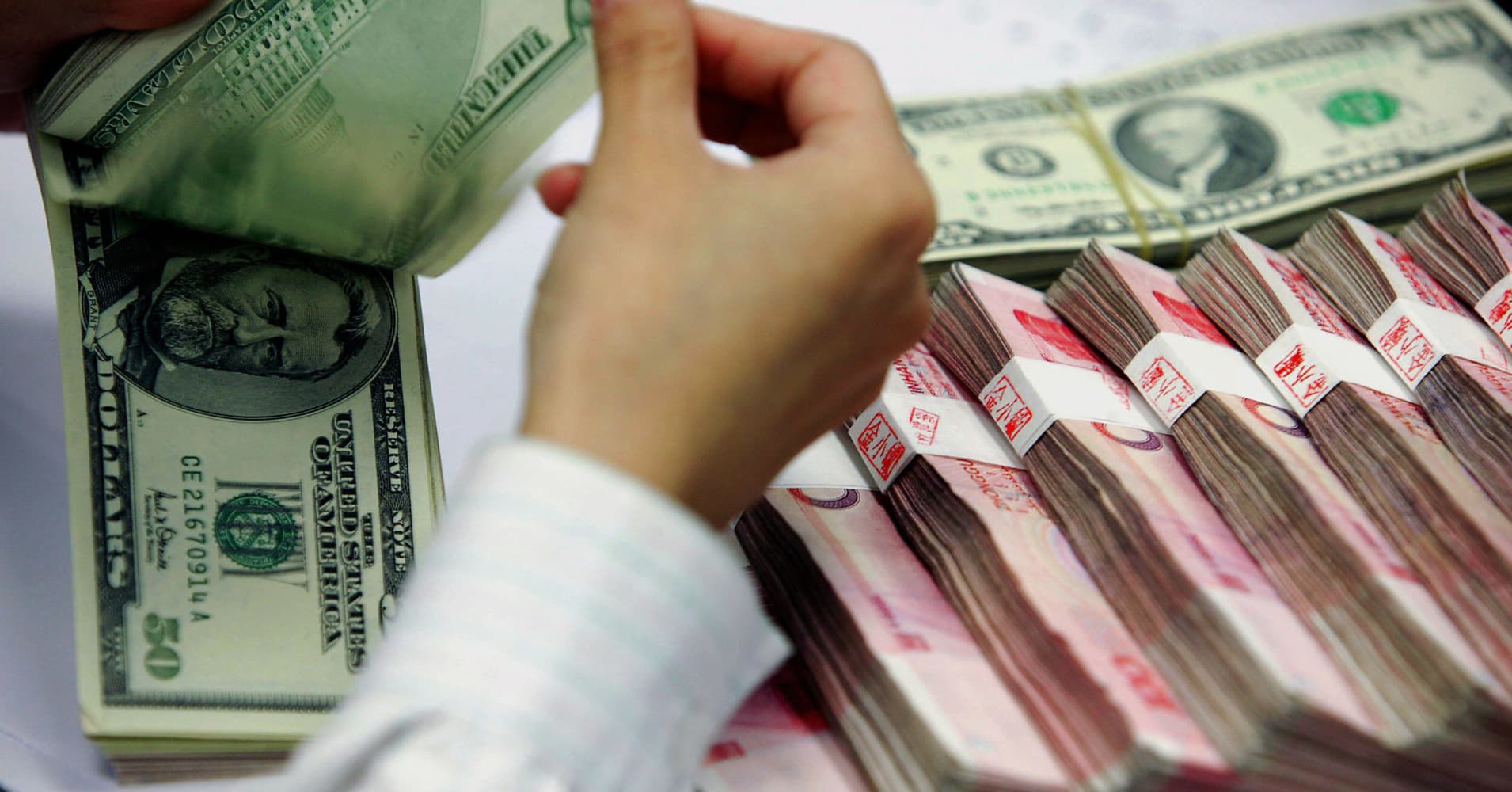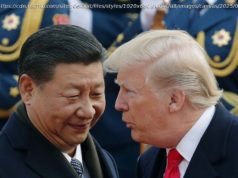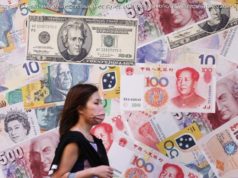 China is selling U. S. Treasurys at a record pace, indicating continued pressure to support the yuan and keep money from leaving the country.
China is selling U. S. Treasurys at a record pace, indicating continued pressure to support the yuan and keep money from leaving the country.
In continuous selling over the six months through November, China sold $194.66 billion of Treasurys and over the previous 12 months, sold $215.11 billion. Both figures are records, according to Reuters.
The People’s Bank of China „is intervening in this particular case for a very specific reason, that they want to mitigate the downside pressure on the RMB [Chinese yuan] coming from capital flows,“ said Benn Steil, senior fellow and director of international economics at the Council on Foreign Relations in New York.
„They are very concerned unless the RMB is stable there will be a self-perpetuating acceleration of outflows,“ he said.
No one knows exactly how much or how quickly money is leaving China, but anecdotes and financial reports suggest the strain is significant.
Amid political uncertainties and expectations of a weaker yuan, Chinese conglomerates are snapping up U. S. and European companies, and Chinese individuals are purchasing U. S. real estate.
Buying in the U. S. dollar also has sent the dollar index to a 14-year high and the yuan to an eight-year low.
Meanwhile, Chinese authorities have been selling dollars and buying yuan in an effort to prop up the currency. The continued selling in Treasurys coincides with China’s declining foreign exchange reserves, which fell in December to the lowest since February 2011 at $3.011 trillion. The figure did hold just above the psychologically key $3 trillion level.
Michael Pettis, professor at Peking University’s Guanghua School of Management and author of „The Great Rebalancing,“ makes an economic argument for watching China’s sale of Treasurys as an indicator on Chinese capital flight.
„Because Chinese residents are buying an amount of foreign assets that exceeds the current account surplus , the PBoC must sell enough foreign assets that makes net purchase of foreign assets equal to the Chinese current account surplus,“ Pettis said in an email. The current account is the difference between a country’s savings and investments, and China has a surplus because it exports more than it imports.
As a weaker yuan spurs fears of sharper devaluation, triggering outflows that can escalate, the burden on Beijing is increasing. Chinese authorities have increased scrutiny of individuals‘ overseas cash transfers and sought to limit companies from making foreign purchases not related to their core business.
And if China can maintain gradual depreciation of the yuan and even strengthen it in the near term, that goes against a speculative one-way bet on a weaker currency.
„Selling Treasurys will temporarily boost CNY [the yuan] versus the U. S. dollar and that might please sentiment directly,“ said Lucy Qiu, emerging markets strategist at UBS Wealth Management.
While Chinese authorities are clearly working to prop up the yuan, some analysts say the capital flight situation is not as severe as the data might suggest.
„The biggest reason for the decline in reserves is China’s corporations paying down U. S. debt,“ said Nicholas Lardy of the Peterson Institute for International Economics, citing a Bank for International Settlements report .
Lardy put Chinese purchases of U. S. property at about $25 billion a year, „basically a rounding error. “
Pressure on cross-border capital outflows eased somewhat in 2016, SAFE spokeswoman Wang Chunying said at a news briefing , Reuters reported Thursday. „When the pressure is big from inflows and when the pressure is big from outflows, we have a series of contingency plans,“ she said.






